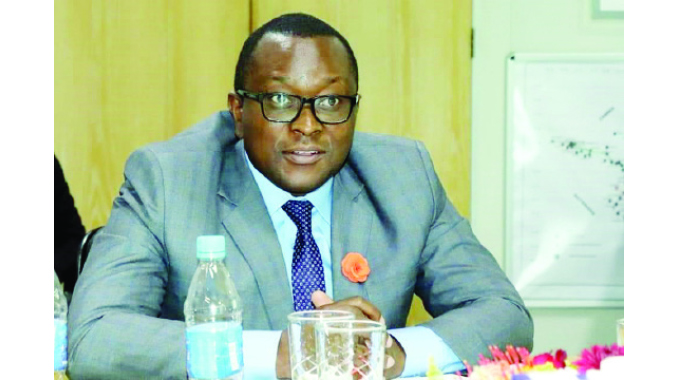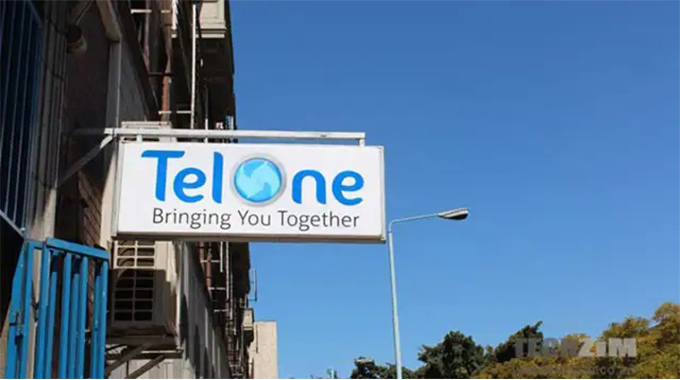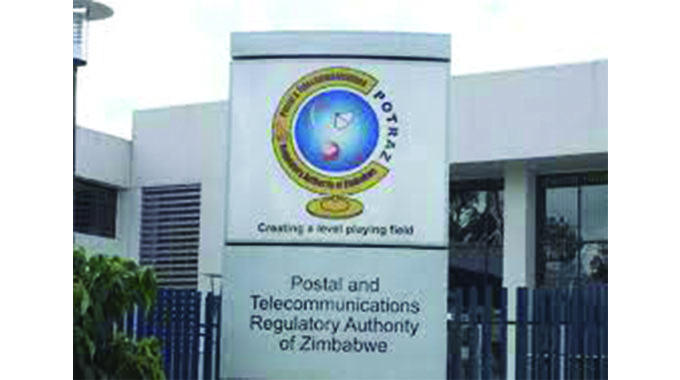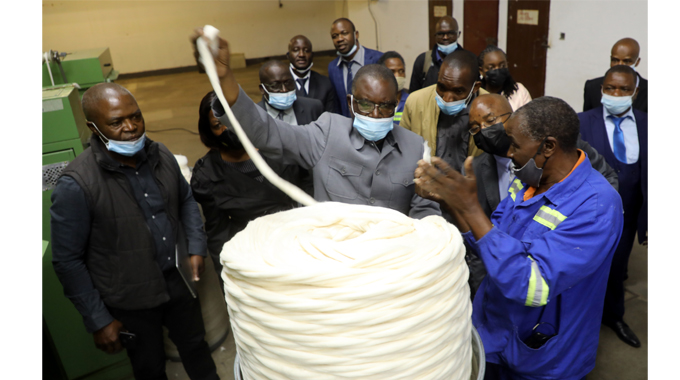Vandalism — a threat to ICT and attainment of digital economy

Michael Magoronga, Correspondent
EIGHT-YEAR-OLD Tinashe Moyo stood in amazement as he marveled at laptops and other digital equipment delivered to his school as part of the government’s initiative to bring technology to all areas of the country as momentum of a digital economy gathers pace.
His school, Chisina Primary School in the deep rural Gokwe North district received information communication technology equipment from the government on that day with three other schools.

laptops
His teacher, Mr Phillip Pwasirayi said most of the learners were seeing computers for the first time.
“The only computer they have seen so far is the one I drew for them on the board as I try to make them understand.
We thank the government for such an initiative as it makes it easier for learners to relate,” said Mr Pwasirayi.
The Gokwe schools, two secondary and two primaries, which received 30 laptops, internet connection, a printer as well as other supplementary equipment each, are part of at least 8 800 schools that earmarked to receive laptops, while civil servants will also be equipped with the necessary digital skills in order to improve on service delivery.
The development has since seen the country’s internet penetration jumping to above 60 percent, according to Potraz as the Government intensifies the digital connectivity pace, which is vital in building a vibrant digital economy towards 2030.
Almost every sector from the judicial, education, parliamentary and even individual businesses have embraced the digital platforms in doing business showing the significant strides being made by the country in its quest to digitalise the economy.
The attainment of a digital economy and information society are some of the key pillars of NDS1.
Internet connectivity is one of the national key result areas for outcomes leading to improved access and usage of Information Communication Technologies (ICTs) and developing a digitally enabled economy.

TelOne
But amid all pomp and funfair, it is disturbing to note that most of the digital equipment donated to schools have not been used as vandalism and thefts have stood in the way of the country’s quest to attain a digital economy.
The demand for copper cables has resulted in lack of electricity as thieves and vandals have stepped up their efforts of pulling the plugs off the digital economy grid.
Vandalism and theft of digital equipment has remained a stumbling block confining Tinashe Moyo and his peers to digital darkness.
Recently telecommunications operator, TelOne, announced that it was losing an average of US$1million annually due to vandalism.
The company has since embarked on a drive to provide wireless or optic fibre network solutions to replace copper installations which have been a target of vandalism across the country, crippling service delivery in the process.
According to the company’s head of corporate communications, Ms Melody Harry, the incidents of vandalism of telecommunications infrastructure have been on the rise countrywide and going wireless was part of the long-term solutions.
“The company has been grappling with vandalism over the past five years with nearly all the urban and rural areas countrywide recording vandalism incidents. Provision of network solutions such as wireless or optic fibre that are less susceptible to vandalism is ongoing in different areas countrywide,” she said.
This comes as power utility ZESA Holdings also announced that it has been losing over US$9million annually due to vandalism and theft of its infrastructure.
Government has since set aside a mandatory 10-year-jail sentence under the Copper Control Act for anyone convicted of vandalising or stealing such infrastructure, but only a handful of such thieves having faced the music.
The war to curb vandalism and theft of ICT infrastructure has seen affected sectors combining forces to put an end to the scourge.
Zesa Executive Chairman Dr Sydney Gata said they have adopted the remotely operated aircraft operator certificate (ROC) from the Civil Aviation Authority of Zimbabwe which would help detect vandalism and thefts faster.
He said Zesa was leveraging on digital technologies such as drones, anti-intrusion detection systems, intelligent closed circuit television systems, geographical information systems, remote sensing, smart-metering, and artificial intelligence, among others.
“In order to keep up with changing customer demands, Zesa is now embracing technology to deliver an unmatched customer experience. The remotely piloted aircraft operator certification (ROC) of Zesa by Caaz supports the national priorities of infrastructure and utilities and creation of a digital economy under the NDS1.
“The thrust of the NDS 1 is to facilitate achievement of an e-enabled economy where all sectors including the power industry embrace ICTs such as drones in order to improve operational efficiency in line with global trends.”
Dr Gata said the drones would support NDS1’s objectives in site mapping, environmental impact assessments and management of construction of power projects.

Zesa
ICT, Postal and Courier Services Minister, Dr Jenfan Muswere expressed concern over the spate of vandalism and theft of public and private technology infrastructure saying Zimbabwe has set its focus on establishing a robust electronic commerce-modelled economy under the national economic blueprint championed through increased collaboration with private sector players.
The minister said the Government remains committed to establishing, equipping and connecting every public institution to modern technology as the nation marches towards a digital economy.
Under the Master Plan, smart education, smart cities, smart transport, smart agriculture, smart health and data centres will be established across the country.
“For this year, we have budgeted for about 8 800 institutions that have been identified and will get these centres. We are currently on a blitz where we are establishing these kiosks and data centres across the country,” he said.
Dr Muswere said ICT was a game changer, which was expected to transform the way of doing things especially in a Covid-19 era adding that government was not backing down since the digital economy was expected to bridge the gap between rural and urban life.
“Inclusivity is part of the agenda. We want to bridge the gap between rural and urban communities in terms of connectivity. It is a government project and our sister departments are also ensuring that at every institution there is power,” said Dr Muswere.
Postal and Telecommunications Regulatory Authority of Zimbabwe (Potraz) director general, Dr Gift Machengete said the drive to unlock wider digital economic opportunities was critical to achieving economic growth targets under the NDS1.

Dr Gift Machengete
“The digital economy has become the buzz word not only in Zimbabwe but across the world, as it is believed to be the hallmark of success for any serious nation going into the 4th Industrial Revolution,” said Dr Machengete.
He said the regulator will continue to align its surveys to evolving policy needs and priorities. This would be achieved through facilitating surveys on emerging priorities such as e-commerce, e-government, e-education, privacy and security issues as well as child online protection and digital skills indicators in a more comprehensive way.

Post and Telecommunications Authority of Zimbabwe (Potraz)
“Such surveys will indeed facilitate informed strategising and interaction in mapping the way forward to achieve the targets of NDS1 and the attainment of our national Vision 2030,” he said. Dr Machengete said research and needs assessments were critical for Potraz for planning and strategising on the best interventions to mitigate the gaps in the ICT sector in order to bridge the digital divide.
It however remains to be seen if the steps being taken by the government and its partners will save the day for young learners like Tinashe Moyo whose dreams are being squashed by vandals who are robbing the country of the future by attacking projections of a digital economy by 2030. — @michaelmagoron1










Comments